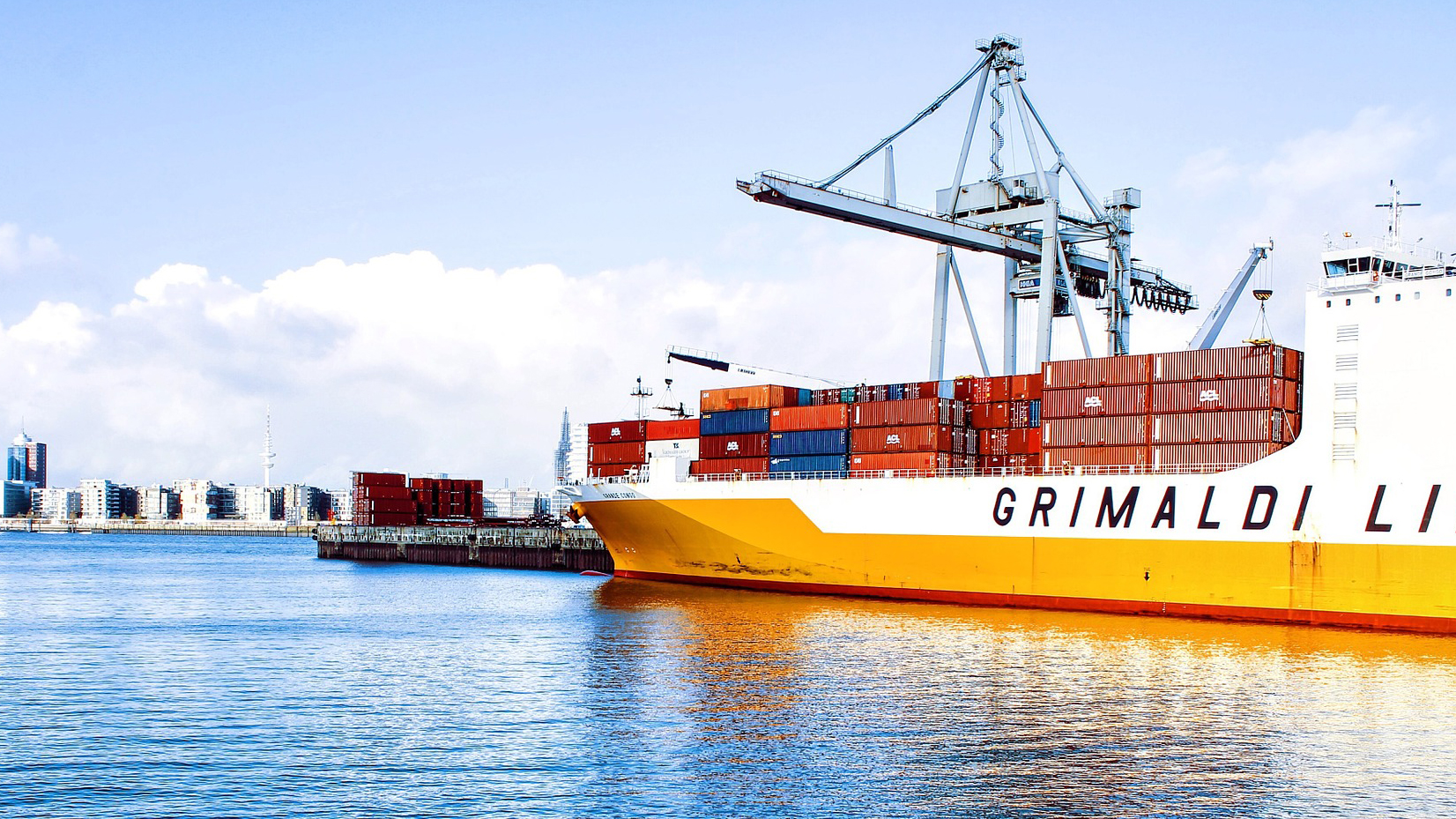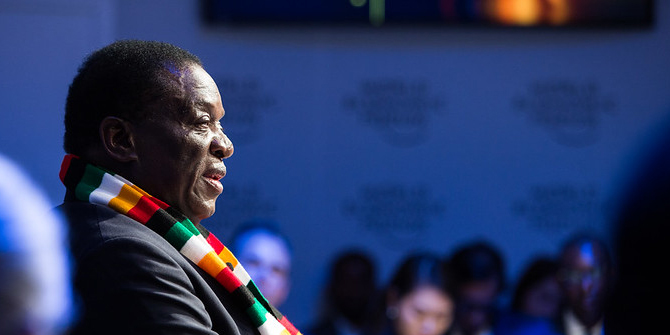The recent UK-Africa Summit in London was big on rhetoric but short on economic commitments in the post-Brexit landscape. Researchers from the University of York explore ongoing uncertainties around the message of ‘Global Britain’, and the implications for EPAs, migration and African exporters.
On 20 January 2020 the UK played host to the inaugural UK-Africa Investment Summit. It was a flagship event intended to sell the UK’s ‘Global Britain’ policy agenda and evidence former Prime Minister Theresa May’s 2018 pledge to be the G7’s biggest investor in Africa by 2022. But at this event, which hosted the representatives of 21 African nations, there was much talk of the potential for new trade and investment links but few concrete commitments.
In fact, marking a distinct break with protocol, the UK failed to make any new bilateral funding promises, leaving high-level delegates empty-handed on their flights back to the continent. This puts the UK far behind ‘competitor’ nations such as the USA, India, France, Japan and China who regularly close summits with substantial financial pledges. According to Africa Confidential, China leads the pack with a pledge of at least 50 Billion USD at each summit it hosts. Could this be an indicator of the importance of UK-Africa relations to the UK in the wake of Brexit?
A month before the Summit, on 10 December 2019, the University of York hosted a workshop titled Africa beyond Brexit: Ideas and Practices of Postcolonial Engagement in a Changing Global Order, which brought together policymakers, practitioners and academics to discuss a range of issues that are central to the future of UK-Africa relations as the Brexit process continues and the UK plans its forthcoming trade negotiations. Following the Conservative election victory just two days later, questions around the implications for Africa of Prime Minister Boris Johnson’s vision for an ‘outward-looking truly global Britain’ appear even more pressing.
As we enter a new decade and continue mapping Britain’s Brexit trajectory after leaving the European Union on 31 January 2020, what does the UK’s evolving foreign and economic policy vision mean for the future of the UK’s relationship with the African continent? Johnson’s new administration is yet to signal any specific foreign policy objectives and the Conservative manifesto is distinctly devoid of any reference to the continent. The news of Johnson’s advisor Dominic Cummings’ looming civil service shakeup has many in Whitehall concerned, with widespread speculation and some public calls for the merger of the Foreign Office and the Department for International Development.
But the new administration is still yet to commit financially to any serious changes to aid and trade with Africa, and the lack of concrete outcomes from the UK-Africa Summit does little to instil confidence. If it is to be meaningful, ‘Global Britain’ must be followed through with substantial investments in trade and (potentially) aid, but the current gulf between rhetoric and reality is significant. The exploration of the potential pitfalls in the UK’s engagement with Africa after Brexit allows us to identify and examine how ‘Global Britain’ could be reinvigorated to boast a more effective and progressive foreign policy agenda.
Continued uncertainty for African exporters
In the trade arena, the UK government is in the process of replicating existing EU Economic Partnership Agreements (EPAs) with African countries and regions and has concluded talks with groups of states in Eastern and Southern Africa and Southern Africa. These agreements will come into effect in the event that the UK leaves the EU with no deal – still a possibility at the end of the transition period on 31 December 2020 – and will preserve existing levels of preferential access to the UK market for these countries.
The UK has also put in place unilateral trade preference schemes that mirror those of the EU and provide favourable market access for a large number of African countries. For some, the replication of existing trade arrangements with African countries amounts to a missed opportunity to radically overhaul the EU’s approach to trade and development. However, the May government concluded that replicating existing arrangements was the best way of preserving continuity of market access for vulnerable African states – perhaps rightly its first priority.
Despite these efforts, uncertainty remains for some African exporters, particularly those involved in complex production chains. For the automobiles industry based in South Africa, for example, much depends on the future of the relationship between the UK and EU. Specifically, the question here is whether parts produced in the UK that are subsequently included in cars built in South Africa will count as ‘local content’ for the purposes of exports to the EU. This will determine whether these vehicles will continue to be eligible for the trade preference that currently makes them competitive in European markets.
Other questions for African producers relate to the rules and regulations required for entry into the EU market and, in the future, the UK market. Some in the South African citrus industry, for example, are hopeful that the UK may relax regulations related to the fungal disease Citrus Black Spot – a longstanding issue of contention with the EU. However, divergence in regulatory regimes also brings other uncertainties for African exporters, for instance issues surrounding the certification of goods entering the UK/EU and the processes regarding goods that are re-exported from the UK to the EU or vice versa. In short, there will remain significant uncertainties for some African exporters until the future of the UK-EU relationship is resolved.
Divergent aims and interests
Returning to the EPAs, the government noted at the Investment Summit that it ‘will aim to deepen [replicated] agreements to make them even better for business, ensuring they reflect the ambitions of African partners to increase trade with the UK in high-value services, harnessing the internet and new technologies’. One of the key issues our workshop revealed, however, was that there still exists a chasm between African and UK perspectives as to what can be achieved through new trade deals after Brexit.
The UK economy is heavily reliant on and has a clear comparative advantage in services, and this will likely be foremost in its proposed agenda for ’deepening’ the EPAs. Facilitating trade in services, however, depends not simply on removing barriers at the border but on addressing so-called ‘behind the border’ issues – that is, making changes to domestic regulatory regimes. This can be extremely politically sensitive, and has proven so in the past in African trade negotiations. Indeed, the EU’s own desire to conclude ‘comprehensive’ Economic Partnership Agreements with African countries foundered on exactly such issues, resulting in the significantly shallower set of arrangements in place today.
With close links to trade in services, one of the clear opportunities that Brexit presents for Africa is to negotiate the relaxation of visa rules and to allow for a greater number of migrants. Despite Johnson’s pledge to put ‘people before passports’ at the Investment Summit, the details of his proposed Australian-style points-based immigration system – and its impact on migrants from Africa – are unclear. Much work remains to overhaul a visa system that is, according to a recent parliamentary report, ‘inaccessible to many Africans, under-resourced, unaccountable and widely perceived as biased or even discriminating against Africans’. International exchanges are both culturally and economically profitable, but this may not be on the UK’s agenda post-Brexit if there is increased hostility towards migrants at home.
Remittances also demonstrate the positive effects that migration can have for African economies. If the current upward trend continues, remittances could become the largest form of external funding in some African countries. Cash remittances from the African diaspora in the UK are hugely significant and there is potential for a disorderly Brexit to damage this cash inflow, both as a result of slower growth or a recession and a weaker pound. Analysis by the Centre for Global Development also suggests that a loss of ‘passporting’ rights for UK financial services firms operating in the EU would disrupt a network of 40,000 remittance agents working across the European continent.
Beyond the specifics of the threats and opportunities posed to African countries by Brexit, the messy divorce process to date has led to comparisons between Britain and the old stereotype of an African failed state. The political crises generated by Brexit have damaged the UK’s reputation abroad and could hinder any future calls for Westminster-style democratisation in Africa. If it is to be successful, additional resources and a clear strategic vision will be needed to match other major global players in their attempts to strengthen relations with Africa. Moving forward, there needs to be more certainty as to what the relationship with the EU will look like, and consequently a foreign policy agenda devised that continues to push for a ‘Global Britain’ that works in the interests of developing-country partners as well as the UK.
Photo: ‘Family photo of leaders, country representative and key speakers at the UK-Africa Investment Summit’ by DFID/Jim Winslet is licensed under creative commons (CC BY 2.0).





